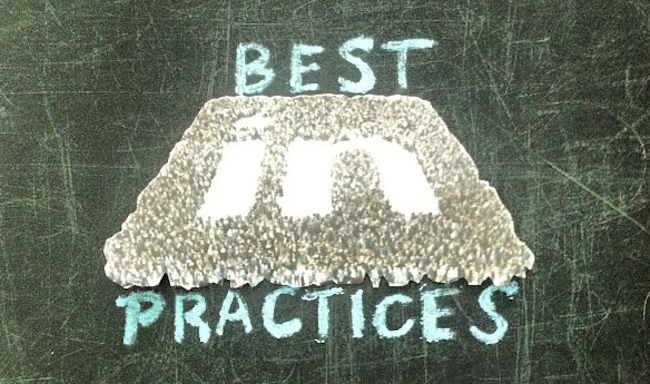LinkedIn has a job board and candidate database for the purposes of connecting professionally online and finding job seekers to fill corporate roles. LinkedIn reports +175 million registered users across 200+ countries. There are LinkedIn best practices when engaging and reaching out to candidates. Here are 5 Ways Not to Contact Candidates on LinkedIn:
1. The Template LinkedIn InMail. The InMail, like Facebook’s new paid message, can be a successful tool for messaging job seekers. LinkedIn user’s response rates to InMail messages from recruiters are all over the board. The key to a great LinkedIn message from a recruiter is to not send one at all. Messaging a job seeker with paid InMail should be a recruiter’s last-ditch scenario if all else fails. Try connecting first.
You can also connect with these job seekers by emailing them directly, using the information found on their professional blog or other social networks. I might even suggest you pick up the phone. That’s right, sometimes you should phone a candidate. It also offers the opportunity to talk using your voice and not your fingers.
2. Not Being Genuine in Your LinkedIn Messaging. Building on the previous point, showing a potential applicant that they are worth your time goes a long way. Don’t send a form InMail or message with an open call to apply for a job you’re trying to fill. Show that you actually took the time to see if their body of work is qualified for the job, instead of just a quick look at their LinkedIn profile. Address them by name and connect with them, and even mention what it is about their work that caught your eye. The mass messaging, untargeted approach doesn’t work.
3. Lacking Follow-Up. You’ve spent hours upon hours trying to find a good range of candidates that you think would be a good match for your company, but forgot to follow up. If at first you don’t get a response, following up 3-5 days will allow enough time to pass to give it another shot. The passive job seeker is busy with 40+ hours of work, family responsibilities, and anything else on top of that. You are now recruiting on their time, not your own. The downfall of a declining unemployment means the recruiter is doing the hunting, and not being hunted.
4. Post and Pray. While I’m a fan of using job feeds for online distribution, don’t post and pray, especially in groups on LinkedIn. This is the lazy man or woman’s recruiting way. Engage, build relationships and have a conversation.
5. Not Selling the Company. The passive job seeker isn’t always just looking for an increase in pay when trying to find the company that fits. When reaching out to a job seeker don’t just try and sell them on the job, sell them on the experience and the company. The company culture is just as important to the passive job seeker as the pay and benefits. Sell them on everything not just a job you’re trying to fill. This will get the job seeker more excited about working for your company.
If used right Linkedin can be an excellent resource to find the perfect candidate for any job position you’re try to fill. Just remember that when on Linkedin in a good economy it’s going to take longer to recruit the right candidate. Focusing on company culture instead of base pay will go a long way when looking for the right fit. You’ll also want to focus on being a real human instead of just a face being a computer.
 Jessica Miller-Merrell, SPHR is a workplace and technology strategist specializing in social media. She’s an author who writes at Blogging4Jobs. When she talks, people listen.
Jessica Miller-Merrell, SPHR is a workplace and technology strategist specializing in social media. She’s an author who writes at Blogging4Jobs. When she talks, people listen.







